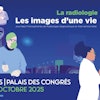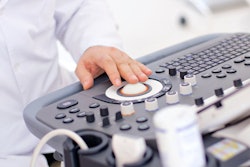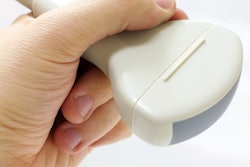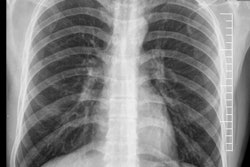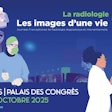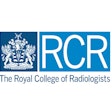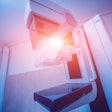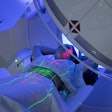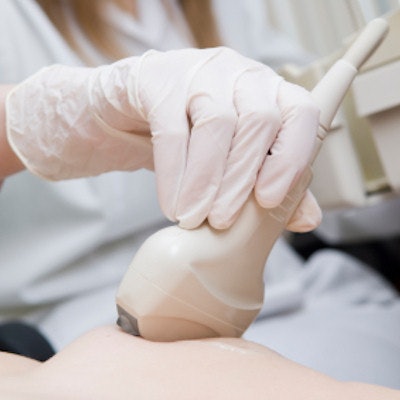
In a bid to raise the quality of ultrasound scans by nonradiologists, the U.K. Royal College of Radiologists (RCR) has revised its training recommendations for doctors using the modality. The guidelines incorporate ongoing best practices and now include a section on head and neck ultrasound.
The recommendations cover the knowledge base and practical competencies needed for clinicians using ultrasound across a range of specialties, including urology and gynecology, gastrointestinal, vascular, musculoskeletal, focused emergency medicine, and cranial ultrasound in infants, according to the RCR.
 Dr. Syed Junaid, a radiology registrar from Cardiff, U.K.
Dr. Syed Junaid, a radiology registrar from Cardiff, U.K."The use of point-of-care ultrasound has proliferated exponentially, where different medical professionals are using it in a focused manner and, hence, these guidelines provide an excellent framework to aim toward," noted Dr. Syed Junaid, a radiology registrar from Cardiff, U.K. "The guidelines in themselves are excellent and fairly comprehensive for the various areas of ultrasound. There is a section that allows trainees to be signed off by trainers in areas of competencies."
The crux of the guidelines is they give nonradiology doctors a framework and standards to practice the use of ultrasound safely -- a high standard that would be expected of any radiologist, he continued.
"This is so that nonradiologists don't just dabble with medical ultrasound but have proper training, continuous professional development, and audits of their work -- just as we have in radiology for our ultrasound use. This is essentially for the benefit of patients to ensure they get adequately trained professionals carrying out their ultrasound," said Junaid, who represents Wales on the RCR's Trainees' Forum.
Quality matters
High-quality ultrasound services must be provided by properly trained and committed practitioners using appropriate-quality ultrasound equipment, the authors of the guidelines explained. In the U.K., radiologists and sonographic practitioners have traditionally supplied such a service from centralized departments of clinical radiology, where equipment and manpower can be used cost-effectively.
"In response to the increasing demands on radiology departments, medical specialists other than radiologists are increasingly wishing to undertake ultrasound examinations on patients referred to them for their clinical opinion as a direct extension of their clinical examination," they wrote. "This document makes recommendations for ultrasound training in a broad range of areas to help ensure that ultrasound training is of the same high standard for both medical nonradiologists and radiologists."
The guidelines replace the 2014 document, "Ultrasound training recommendations for medical and surgical specialities." They were developed by Drs. Chris Harvey, Andrew McQueen, Andrew Smethurst, Robert Holmes, and their colleagues at the British Society of Head and Neck Imaging, the Clinical Radiology Professional Standards Board, and the Clinical Radiology Faculty Board.
The document can be downloaded for free from the RCR website.
